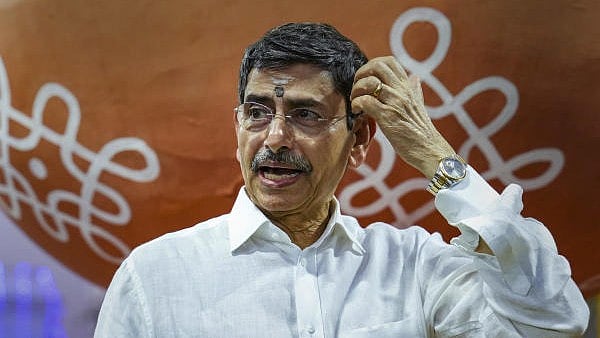
Tamil Nadu Governor R N Ravi.
Credit: PTI Photo
Questions framed by the Supreme Court on the issue of Tamil Nadu Governor R N Ravi’s handling of bills passed by the State legislature have again brought into focus the Governor’s action on the matter. The Governor’s position has not only been obstructionist; it has militated against the Constitution because he has failed to discharge his constitutional duty. The court’s questions and observations came in response to a petition filed by the Tamil Nadu Government against the Governor forwarding bills to the President after they were passed by the Assembly a second time. Other states ruled by non-BJP parties have also approached the court raising similar questions about the actions of governors. It is to be noted that the court has in the past criticised the conduct of governors in connection with the issue but a resolution remains elusive.
The apex court has asked how the Governor could send to the President bills passed for a second time by the state legislature. Under Article 200, the Governor can give assent to a bill, withhold the assent, or refer it to the President. While withholding assent, the Governor should return the bill to the Assembly as soon as possible, giving reasons for its reconsideration. Article 200 says: “If the Bill is passed again by the House... with or without amendment and presented to the Governor for assent, the Governor shall not withhold assent therefrom.” The Tamil Nadu Governor has not abided by this provision. It was argued on behalf of the Governor that the bills were sent to the President because they were repugnant to a Central law. But the court rightly asked why that could not be communicated to the state government. It said the Governor could not sit over the bills based on a perception of repugnance to a central law, and asked how the government was expected to know what was in the Governor’s mind.
The Governor’s counsel suggested that the Governor had inherent powers and discretion in the matter. But the court said that “inherent powers will not override main provisions.” The counsel also claimed that “once the bills were with the President, Article 254 came into play, and the bills ceased to exist.” The court has not accepted the argument and asked whether it did not go against the Constitution’s intent when a Governor repeatedly returned bills. It answered the question by stating that the Governor is constitutionally bound to approve a bill if the Assembly passed it a second time and quoted Ambedkar in support of it. That such a basic Constitutional mandate is not followed by some Governors, for obvious political reasons, calls for serious deliberation.
